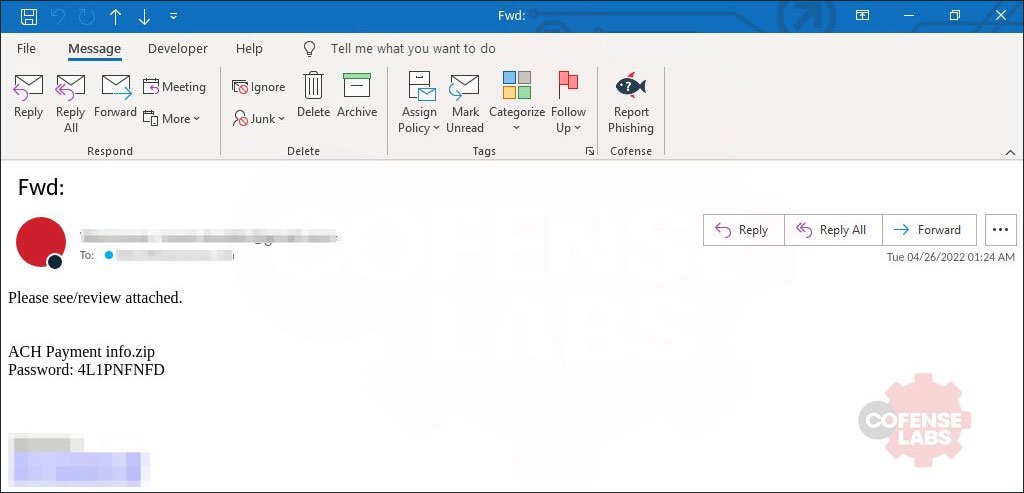Emotet malware infects users again after fixing broken installer

The Emotet malware phishing campaign is up and running again after the threat actors fixed a bug preventing people from becoming infected when they opened malicious email attachments.
Emotet is a malware infection distributed through spam campaigns with malicious attachments. If a user opens the attachment, malicious macros or scripts will download the Emotet DLL and load it into memory.
Once loaded, the malware will search for and steal emails to use in future spam campaigns and drop additional payloads such as Cobalt Strike or other malware that commonly leads to ransomware attacks.
Buggy attachments broke the Emotet campaign
Last Friday, the Emotet malware distributors launched a new email campaign that included password-protected ZIP file attachments containing Windows LNK (shortcut) files pretending to be Word documents.

Source: Cofense
When a user double-clicked on the shortcut, it would execute a command that searches the shortcut file for a particular string that contains Visual Basic Script code, appends the found code to a new VBS file, and executes that VBS file, as shown below.

Source: BleepingComputer
However, this command contained a bug as it used a static shortcut name of ‘Password2.doc.lnk,’ even though the actual name of the attached shortcut file is different, like ‘INVOICE 2022-04-22_1033, USA.doc’.
This caused the command to fail, as the Password2.doc.lnk file did not exist, and thus the VBS file was not created, as explained by the Emotet research group Cryptolaemus.
#emotet Update – As of the last few hours Ivan is running some tests on E4 to try to bypass detection by appending a VBS at the end of an LNK file in a zip. The LNK when launched will find a string in itself and then copy the remainder from that string after to a VBS file. 1/x https://t.co/pEcOWdbfOa
— Cryptolaemus (@Cryptolaemus1) April 22, 2022
Cryptolaemus researcher Joseph Roosen told BleepingComptuer that Emotet shut down the new email campaign at approximately 00:00 UTC on Friday after discovering that the bug was preventing users from becoming infected.
Unfortunately, Emotet fixed the bug today…



